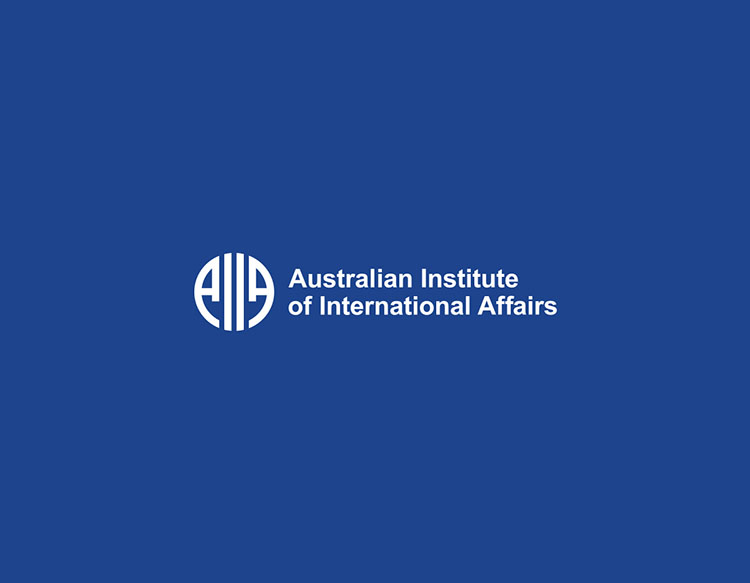As Japan and South Korea mark 60 years of diplomatic ties, South Korea swears in a new president and the US
security umbrella in the Indo-Pacific shows signs of strain, there is no better time to examine the Japan-South
Korea relationship. While challenges and opportunities remain, this relationship now sits at the heart of regional
peace and stability. On Tuesday 3 June, AIIA NSW welcomed Dr Chris Khatouki, Research Fellow at the
University of New South Wales (and former AIIA NSW councillor and intern), to unpack this fraught and often
misunderstood relationship. His recent overseas research has benefited from an AIIA Euan Crone Asian
Awareness Scholarship.
Pax Americana, Khatouki argued, has long provided a buffer that has prevented Japan-South Korea relations
from progressing meaningfully. Washington’s overwhelming presence in the region allowed long-standing
historical grievances between the two countries to remain largely unaddressed. But with the limits of American
power increasingly exposed, Khatouki argued that conflicts which have long been “shelved” and “repressed”,
must finally be confronted.
History continues to cast a shadow over bilateral relations. Japan’s rapid modernisation in the late 19th century
and its embrace of imperial expansion led to Korea’s brutal colonisation – a legacy that remains firmly
embedded in Korean national identity. Following Japan’s defeat in 1945, the US stepped in, positioning Japan as
its key regional ally in the Cold War while leaving many colonial-era structures intact in South Korea. Figures
tied to the former Japanese regime rose to power under the dictatorship of Park Chung-Hee – vestiges that
complicated South Korea’s democratic development. Both countries, however, achieved remarkable economic
success, building export-oriented economies that in many ways complemented each other.
Despite periodic gestures of remorse from Japan, particularly in the 1990s, fundamental wrongdoings have
never been fully addressed. The 1965 diplomatic normalisation agreement deferred rather than resolved these
tensions. More recent flashpoints have only deepened the divide. South Korea’s 2018 Supreme Court ruling
ordering Japanese companies to compensate forced labour victims sparked retaliatory trade measures from
Tokyo, while widespread protests and boycotts of Japanese goods erupted across South Korea.
Turning to the present, Khatouki argued that both Japan and South Korea now face a convergence of domestic
and external pressures: stagnant growth, widening inequality, political extremism and an increasingly volatile
strategic environment. As the post-war security architecture weakens, both states may be forced to navigate their
relationship without the mediating presence of the US. Khatouki observed, however, that for middle powers like
Australia, there may be opportunities to play a constructive role in fostering dialogue where Washington cannot.
The Q&A session saw a wide-ranging and lively discussion. One audience member asked whether progressive
movements in both countries could help chart a path toward reconciliation, drawing comparisons to the easing
of Franco-British relations after the Hundred Years’ War. Khatouki offered Germany’s post-Nazi reckoning as a
more recent (and far more problematic) example of how genuine reconciliation can be achieved after a deeply
traumatic history.
On the question of China’s role, Khatouki noted that while both countries have made cautious diplomatic
overtures – including trilateral trade talks – Beijing retains considerable leverage. Broadly, he argued, Chinese
assertiveness is forcing Japan and South Korea into closer security cooperation.
Asked about the possibility of an “Asian NATO” Khatouki cited the failed example of SEATO as a reminder of
how differing threat perceptions and strategic priorities in Asia make multilateral security arrangements difficult
to achieve.
Another question focused on the possibility of South Korea developing its own nuclear weapons. A few years
ago, Khatouki argued, such an idea would have been highly unlikely. But recent developments — including
South Korea’s placement on a US Department of Energy “Sensitive Countries List” — reflect growing concerns
in Washington about Seoul’s nuclear ambitions. Were South Korea to pursue this path, Khatouki warned, it
could trigger a domino effect among other Asian countries seeking nuclear capability.
Khatouki closed by underscoring that, as global power dynamics shift and old security arrangements are called
into question, the ability of Japan and South Korea to confront their shared history will be central to shaping
peace and stability in the Indo-Pacific.
Report by Lily Manning, AIIA NSW intern


